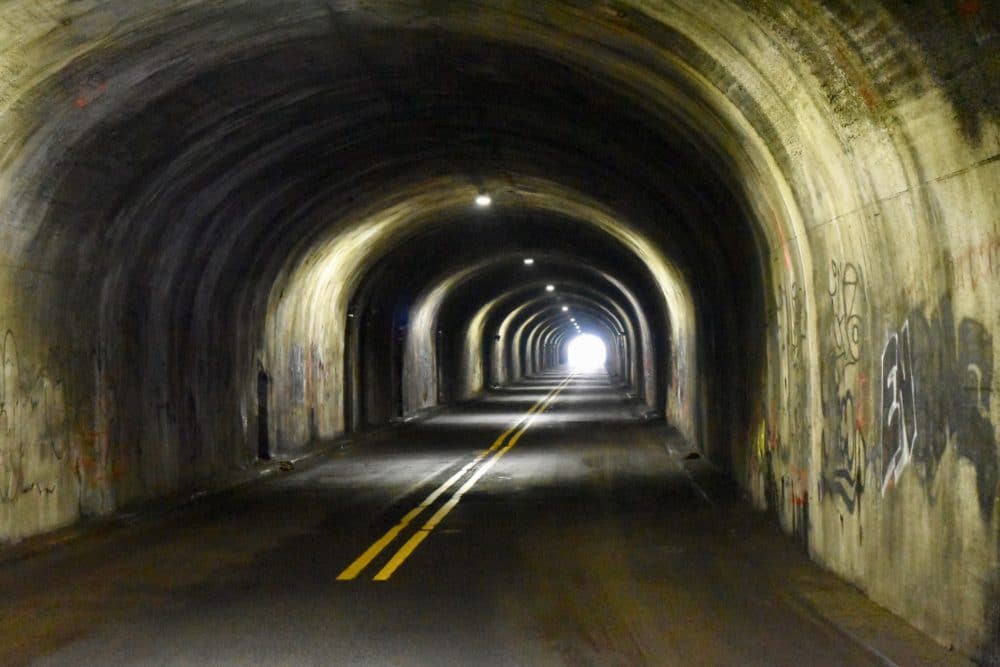Rhode Island’s War on non-drivers
Despite their contribution to climate change and all the people, pets, and wildlife they kill or injure, motorists sometimes complain about the “war on cars,” but in Rhode Island reality there seems to be more of a war against those who don’t drive. Here are 8 bullet points to back that up, plus some thoughts on what to do. There
September 15, 2019, 6:12 pm
By Barry Schiller
Despite their contribution to climate change and all the people, pets, and wildlife they kill or injure, motorists sometimes complain about the “war on cars,” but in Rhode Island reality there seems to be more of a war against those who don’t drive. Here are 8 bullet points to back that up, plus some thoughts on what to do.
- There is TIP amendment #19, just approved over objections from bike and environmental advocates that would shift $37M away from bicycle and pedestrian programs and into highway projects, especially the $250 million project to widen I-95 north in central Providence.
- There is the latest Governor Gina Raimondo/Joseph Paolino/Rhode Island Department of Transportation (RIDOT) proposal to use most of the $35M voters approved in 2014 for improving transit hubs to instead disperse the Kennedy Plaza bus hub, and tunnel under the Plaza for the buses that still have to go through there. This seems largely because Paolino feels many of the low income folks who hang out in the Plaza come by bus, and he worked behind the scenes to get the Governor and RIDOT to embrace this new plan. There was of course no input from anyone who actually uses the buses even though some will face more difficult transfers or have less access to the city center and to the terminal building with indoor shelter, bathrooms, information, tickets, security. The idea of using downtown’s one transportation advantage over everywhere else – good transit access from all directions – and thus improving and promoting transit to attract commuters, visitors, shoppers, clients, progressive entrepreneurs, was apparently off the table.
- Governor Raimondo’s disdain for bus riders was also shown by her ignoring state law requiring at least one member of the Rhode Island Public Transit Authority (RIPTA) Board of Directors be a regular rider of the fixed route system. It seems none of her Board appointments is a regular rider, though the Rhode Island Transit Riders sent in four qualified riders for consideration, to no avail, even though state law requires suggestions from that group be given “due consideration.”
- The state budget includes $94.3M this year to phase out property taxes on cars, ultimately to cost about $225M/year. This shifts the tax burden away from those with the most vehicles and/or the most expensive vehicles to those with no vehicles or maybe an old clunker. While motorists are organized and don’t want to pay, those who don’t drive have little voice.
- Despite good transit access from every direction, the University of Rhode Island-Providence gives “free” parking to all students, faculty and staff, but no transit incentive. Not only does this policy encourage more congestion and pollution, it is also unjust in that those who cannot afford to drive, in effect, subsidize those who can. Is there any other state university with such an anti-environmental, regressive policy for a downtown campus?
- The legislature has so far refused to tighten laws to penalize motorists when their carelessness kills or injures someone. For example, there are cases where a bicyclist was killed by a driver who veered off the lane into the shoulder and a wheelchair user was killed in a crosswalk, but because the drivers weren’t drunk, stayed on the scene, and it couldn’t be proven they did it on purpose, their actions were not criminal. So it was “just a accident” and there was virtually no penalty (maybe a $85 fine for failure to yield.) It has been said, if you want to get away with killing someone, run them over!
- After a snow storm, every effort is made to clear the roadways for drivers while very little effort is made to clear the sidewalks for those who walk, or need to get to a bus stop. To be fair, I think Providence is making some progress in enforcing sidewalk rules, but maybe global warming will be needed to really solve this.
- In pursuit of easier parking, some state agencies and private businesses have been moving out of central areas. Citizens Bank, for example, has moved much of its workforce to a new “campus” west of I-295 that almost surely requires a car to get to. RIDOT building Citizens Bank a new interchange to facilitate that. Neighborhood Health Plan, the Public Utilities Commission and parts of the Rhode Island Attorney General‘s office needed to establis background checks and more have also moved their offices to inaccessible by public transportation spaces. Too bad for those who don’t drive.
Despite all that, those concerned about the downsides of the drive-everywhere culture have few things going. There are plans that might improve transit, (see www.TransitForwardRI.com) and the Rhode Island Bicycle Coalition (ribike.org), the Rhode Island Association of Railroad Passengers and the Rhode Island Transit Riders have active advocacy groups. The environment community is starting to pay more attention to transportation as it is the sector with the highest greenhouse emissions. Consider joining one of the above! Also Providence Planning and the Providence Mayor’s Office actively promote better bike infrastructure, and even the Governor’s Office has become interested in improving the commuter rail to Boston.
And there is always another election!






